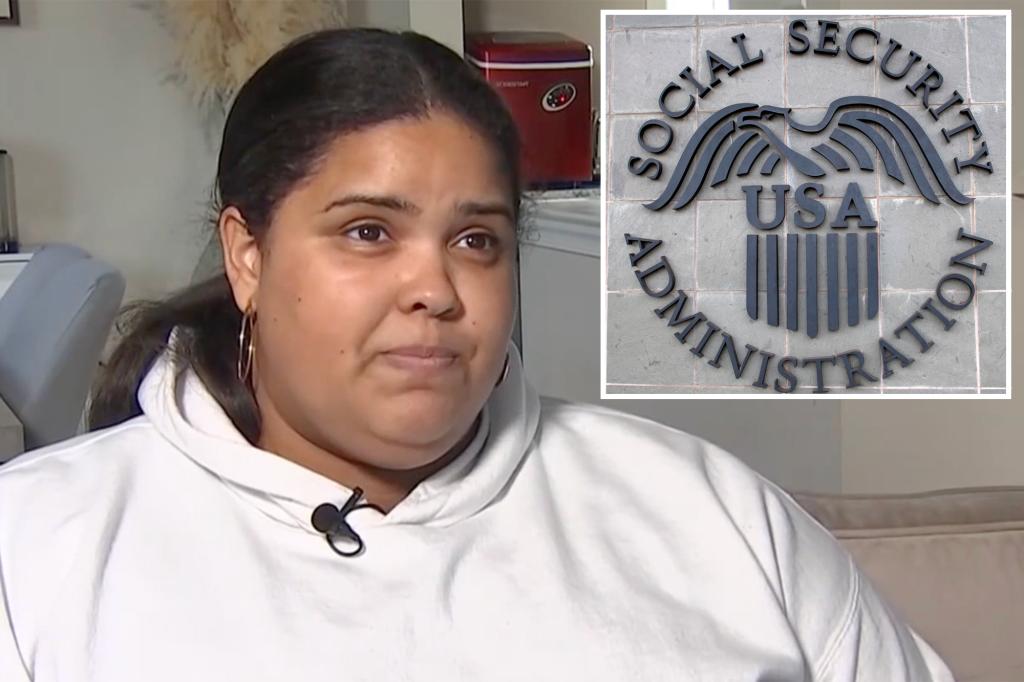The bewildering and bureaucratic nightmare of being declared dead while alive unfolded for Nicole Paulino, a Maryland mother of three, in late 2024. What began as a routine attempt to renew her driver’s license quickly spiraled into a cascade of errors and bureaucratic hurdles that impacted her health, finances, and overall well-being. The Maryland Motor Vehicle Administration (MVA) denied her renewal application, informing her that government records listed her as deceased. This shocking revelation was soon followed by a letter from the Internal Revenue Service (IRS) addressing her as a “deceased taxpayer,” further solidifying the erroneous information circulating within government systems. The cascading effect of this single mistake led to the cancellation of Paulino’s and her children’s health insurance, plunging her into a precarious situation where essential medical care became a financial burden.
Paulino’s desperate attempts to rectify the situation were met with initial roadblocks and frustration. The labyrinthine nature of government agencies made it difficult to pinpoint the source of the error and initiate corrective action. After months of struggle, aided by the inquiries of a local news station, the Social Security Administration (SSA) finally admitted responsibility. The error, they explained, stemmed from a typographical mistake made by a funeral home employee. In attempting to report a death, the employee entered a single incorrect digit in the Social Security number, inadvertently registering Paulino as deceased instead of the intended individual. This seemingly minor clerical error had profound and far-reaching consequences for Paulino, illustrating the vulnerability of individuals to administrative oversights within large bureaucratic systems.
The repercussions of being wrongly declared dead extended beyond the immediate inconvenience of administrative corrections. Paulino, an asthma sufferer, faced significant challenges managing her condition due to the cancellation of her health insurance. Forced to bear the cost of essential inhalers out-of-pocket, she experienced added financial strain and anxiety during a period of already heightened stress. The ordeal took a toll on her physical and mental health, highlighting the crucial role of accessible healthcare and the devastating impact of its disruption. Paulino’s case underscores the need for robust error-checking mechanisms within government agencies and the importance of streamlined processes for rectifying such mistakes to minimize the negative impact on individuals.
While the SSA acknowledged their error and eventually corrected Paulino’s status, the incident exposed systemic vulnerabilities and the potential for widespread impact. The SSA, in a statement, asserted the high accuracy of their records, claiming that less than one-third of one percent of the millions of death reports they receive annually are subsequently corrected. While statistically small, this percentage translates to nearly 10,000 false death reports each year, suggesting that Paulino’s experience, while shocking, is not entirely isolated. The fact that thousands of individuals are potentially facing similar ordeals annually raises concerns about the adequacy of existing safeguards and the effectiveness of corrective procedures within the SSA.
The case of Madeline-Michelle Carthen further illustrates the devastating long-term impact of being wrongly declared dead. Carthen, a St. Louis resident, endured the consequences of an erroneous death declaration for nearly two decades. Falsely listed as deceased in 2007, Carthen faced a relentless series of obstacles that hampered her education, career, and financial stability. Denied financial aid, she was unable to complete her college education. Repeatedly hired and then let go from jobs due to her deceased status, she struggled to maintain consistent employment. The inability to secure stable work further impeded her ability to secure housing and build a secure future.
Carthen’s prolonged struggle highlights the enduring consequences of inaccurate information within government databases and the difficulty individuals face in correcting such errors. The systemic nature of the problem makes it challenging for individuals to navigate the bureaucratic maze and prove their existence, particularly when the error spans multiple agencies and systems. The fact that Carthen, as of September 2023, was still working to rectify her status after nearly two decades underscores the urgent need for more efficient and responsive mechanisms to address such errors and minimize the long-term damage inflicted on individuals caught in this bureaucratic nightmare. The experiences of both Paulino and Carthen emphasize the critical importance of data accuracy and the devastating impact of even seemingly minor clerical errors within government systems. Their stories serve as a stark reminder of the urgent need for improved processes, robust error-checking mechanisms, and more efficient corrective procedures to safeguard individuals from the life-altering consequences of being wrongly declared dead.

